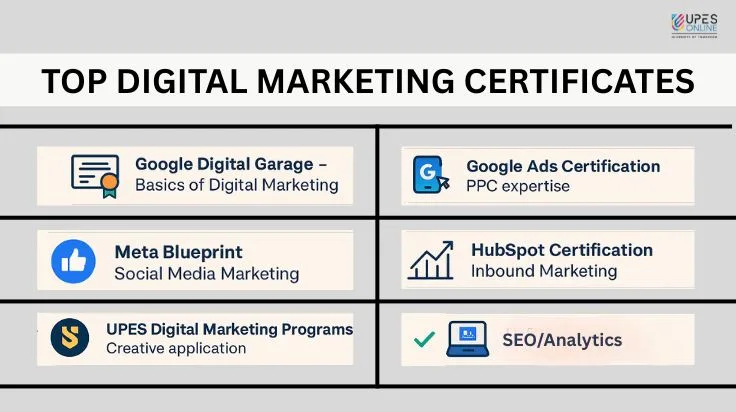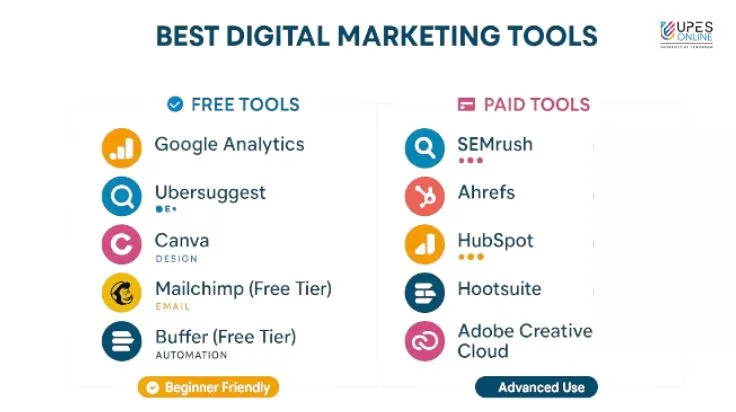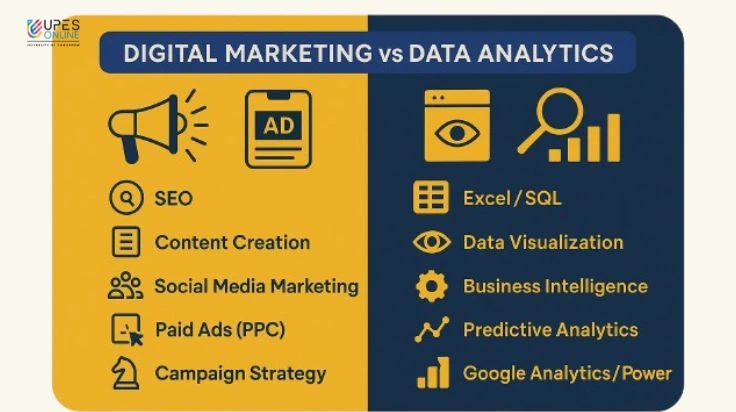Supply Chain Management Job Interview Questions (In 2025)

Solve the supply chain management (SCM) interview puzzle with the compiled list of top 40 questions recruiters are asking in 2025, along with answers that they want to hear. Navigate the complex scenarios with ease, showcase your expertise, and land your dream Supply Chain job!
Let’s begin the prep!
Foundational Knowledge and Commonly Asked Questions
1. Define supply chain management (SCM) and its importance.
Answer: Briefly explain how SCM encompasses the flow of goods and services, from sourcing to delivery, highlighting its impact on cost, customer satisfaction, and competitive advantage.
2. Describe the core functions within SCM.
Answer: Mention procurement, warehousing, transportation, inventory management, and customer service, emphasizing their interconnectedness.
3. Explain demand forecasting and its role in planning.
Answer: Discuss predicting future demand using various methods to optimize inventory levels, production schedules, and transportation needs.
4. What are key elements of an effective transportation strategy?
Answer: Highlight cost, speed, reliability, flexibility, and modal choice (road, air, sea) based on specific requirements.
5. How do you ensure efficient warehouse management?
Answer: Mention techniques like ABC analysis, safety stock calculations, and just-in-time inventory for optimized storage and reduced stockouts.
6. Why is communication crucial in SCM?
Answer: Emphasize clear and timely communication between internal teams, suppliers, and customers for smooth operations and effective problem-solving.
7. What are common challenges in SCM?
Answer: Mention globalization, technological disruption, economic fluctuations, and natural disasters, emphasizing adaptation and risk management strategies.
8. How do you stay updated on trends and technologies in SCM?
Answer: Share your proactive approach (industry publications, conferences, online resources) to learning about automation, AI, blockchain, and IoT.
For Freshers:
1. Describe a past experience showcasing problem-solving skills.
Answer: Choose a non-academic example demonstrating critical thinking, initiative, and finding solutions under pressure.
2. Why are you interested in a career in SCM?
Answer: Express genuine interest and potentially mention specific aspects that intrigue you, briefly connecting it to your career aspirations.
3. Are you comfortable working in a fast-paced environment?
Answer: Show enthusiasm for challenges and adaptability by highlighting your time management and prioritization skills under pressure.
4. Do you have any questions for me (hiring manager)?
Answer: Prepare insightful questions showcasing your interest in the company, specific role, or industry trends, reflecting research and genuine interest.
For Experienced Professionals:
1. Describe implementing a specific SCM technology and its impact.
Answer: Share a relevant project detailing challenges addressed, features utilized, and quantifiable improvements (cost reduction, faster delivery).
2. How do you approach risk management in complex global chains?
Answer: Discuss risk assessment strategies, mitigation plans, and experience managing disruptions like natural disasters or trade policy changes. Mention relevant tools or frameworks you utilize.
3. Discuss analyzing complex SCM data and deriving insights.
Answer: Share a project where you used data analysis to identify inefficiencies, make informed decisions, and improve performance. Mention specific tools or techniques used and achieved outcomes.
4. What are your long-term career aspirations in the SCM field?
Answer: Articulate your career goals with clarity, demonstrating ambition and aligned interests with the company’s vision and growth trajectory.
5. What motivates you in your work and drives your success?
Answer: Share your intrinsic motivation and commitment to excellence, highlighting specific values or achievements that drive you.
6. You discover a potential quality issue with a major shipment. How do you handle it?
Answer: Emphasize a calm and proactive approach, focusing on communication, informing stakeholders, assessing severity, exploring alternative options, and keeping everyone updated.
7. Your company experiences a sudden surge in demand exceeding capacity. How do you respond?
Answer: Showcase adaptability and problem-solving. Discuss short-term solutions (expedited production, temporary staffing, exploring alternative suppliers) while considering long-term strategies (increasing capacity, optimizing inventory).
8. You’re tasked with implementing a new logistics technology. How do you approach this project?
Answer: Focus on planning and stakeholder engagement. Mention conducting needs assessments, involving relevant teams early, providing comprehensive training, addressing concerns, and ensuring smooth integration with existing systems.
Supply Chain Management Situational Interview Questions
- You discover a potential quality issue with a major supplier shipment just before a crucial marketing campaign launch. How do you handle the situation?
Answer: Emphasize a calm and proactive approach. Highlight communication: informing key stakeholders (marketing team, sales, management), assessing the severity and potential impact, exploring alternative options (expedited production, alternative suppliers), and keeping everyone informed with transparent updates. Emphasize prioritizing customer satisfaction and minimizing campaign disruption.
- Your company experiences a sudden surge in demand for a specific product, exceeding your current inventory and production capacity. How do you respond?
Answer: Showcase adaptability and problem-solving skills. Discuss short-term solutions (expedited production, temporary staffing, exploring alternative suppliers) while considering long-term strategies (increasing production capacity, optimizing inventory management). Mention clear communication with stakeholders and proactive measures to fulfill customer orders and minimize disruptions.
- You’re tasked with implementing a new logistics technology (e.g., WMS) across the company. How do you approach this project to ensure successful adoption and integration?
Answer: Focus on planning and stakeholder engagement. Highlight conducting thorough needs assessments, involving relevant teams early, providing comprehensive training, addressing concerns and ensuring smooth integration with existing systems. Emphasize ongoing support and communication to encourage user adoption and maximize the technology’s benefits.
- You face a conflict with a key supplier who is consistently delivering late shipments. How do you resolve the issue and maintain a positive relationship?
Answer: Showcase negotiation and relationship management skills. Discuss open communication, identifying the root cause of delays, and collaborating with the supplier to find solutions (streamlined processes, improved communication channels, performance incentives). Emphasize maintaining a professional and respectful tone while prioritizing timely deliveries.
- Your company plans to expand operations into a new international market. How do you approach the supply chain challenges involved in this expansion?
Answer: Highlight research and adaptability. Discuss conducting thorough market research, understanding regulations and cultural nuances, identifying reliable local suppliers, establishing efficient transportation routes, and adapting inventory management strategies to local demand patterns. Emphasize building local partnerships and cultural sensitivity.
- You’re faced with a critical decision: invest in upgrading warehouse automation or expanding storage capacity. How do you analyze this situation and reach an informed decision?
Answer: Showcase analytical thinking and cost-benefit analysis. Discuss considering factors like long-term ROI, labor costs, efficiency gains, potential disruptions, and alignment with company goals. Mention utilizing relevant data, cost projections, and consulting with key stakeholders before making a well-informed decision.
- You’re leading a team responsible for optimizing the company’s transportation network. How do you approach this task and measure its success?
Answer: Emphasize collaboration and data-driven decision making. Discuss collaborating with different departments, analyzing transportation data (costs, routes, delivery times), exploring alternative modes and providers, implementing cost-saving strategies, and continuously monitoring performance metrics like delivery efficiency and fuel consumption.
Supply Chain Management Technical Interview Questions
Core Concepts:
- Explain the difference between deterministic and probabilistic inventory models, and when would you use each?
Answer: Discuss how deterministic models assume fixed values (e.g., lead time, demand), while probabilistic models consider variability. Highlight specific contexts for each: deterministic models for stable demand and lead times, and probabilistic models for uncertain environments.
- How would you calculate safety stock and what factors influence its optimal level?
Answer: Explain the safety stock formula and its role in mitigating stockouts. Mention key factors like lead time, demand variability, and service level requirements influencing its optimal level.
- Describe the advantages and disadvantages of different transportation modes (road, air, sea, rail) and factors to consider when choosing the right one.
Answer: Compare cost, speed, reliability, capacity, and environmental impact of each mode. Emphasize considering distance, product characteristics, urgency, and budget when making the choice.
- Explain the key features of a Warehouse Management System (WMS) and its benefits for supply chain operations.
Answer: Discuss inventory tracking, order fulfillment, picking optimization, and data analytics capabilities of WMS. Highlight improved efficiency, accuracy, and cost savings from implementing a WMS.
In-depth Question:
- How would you approach implementing blockchain technology in a specific area of your supply chain (e.g., traceability, payments)?
Answer: Choose a specific area and discuss potential benefits (e.g., enhanced transparency, fraud prevention) and challenges (e.g., integration, cost). Mention your understanding of the technology and its applications.
- Explain the impact of artificial intelligence (AI) on demand forecasting and its limitations in supply chain management.
Answer: Highlight how AI analyzes vast data sets to improve forecasting accuracy. Acknowledge limitations like data quality dependence and the need for human interpretation and adaptation.
- Describe a complex supply chain risk management framework and how you would apply it to identify and mitigate potential disruptions.
Answer: Discuss a specific framework (e.g., SWOT analysis) and its steps for identifying, assessing, and mitigating risks. Share an example of its application in a past situation.
- Explain the concept of lean manufacturing and its potential benefits and drawbacks in a specific supply chain context.
Answer: Define lean manufacturing and its focus on waste reduction and efficiency. Mention potential benefits like reduced costs and improved lead times, while acknowledging potential drawbacks like increased workload and potential quality issues if not implemented properly.
- How would you design a sustainable supply chain strategy considering environmental and social responsibility factors?
Answer: Discuss eco-friendly practices (e.g., green packaging, sustainable sourcing), fair labor standards, and responsible waste management. Highlight the importance of balancing sustainability with cost and efficiency.
- Explain the importance of data analytics in supply chain decision-making and provide an example of its application in optimizing a specific process.
Answer: Emphasize data’s role in identifying trends, optimizing processes, and predicting future demand. Mention a specific example where data analysis led to an improved outcome (e.g., reduced transportation costs, optimized inventory levels).
Supply Chain Management Data Warehouse interview questions
Data Warehouse Concepts:
1. Explain the importance of data warehouses in supply chain management.
Answer: Highlight how data warehouses centralize and organize data from various sources, enabling comprehensive analysis of inventory, logistics, procurement, and customer trends. This leads to optimized operations, improved decision-making, and cost savings.
2. Describe the dimensional modeling approach used in supply chain data warehouses.
Answer: Explain how dimensional models organize data into facts (measures) and dimensions (attributes) like time, product, and location. This structure facilitates efficient analysis and visualization of supply chain performance.
3. What are some key challenges in managing data warehouses for supply chain data?
Answer: Mention challenges like data integration from multiple sources, data quality issues, ensuring consistent updates, and balancing performance with data security. Discuss relevant strategies to overcome these challenges.
Data Analysis and Reporting:
4. How would you design a data warehouse report to track key performance indicators (KPIs) in a specific supply chain area (e.g., inventory turnover, delivery times)?
Answer: Choose a specific area and discuss identifying relevant KPIs, data sources, visualization techniques (e.g., dashboards, charts), and ensuring report accessibility for different stakeholders.
5. Explain how you would analyze data to identify root causes of supply chain disruptions (e.g., stockouts, delayed deliveries).
Answer: Discuss utilizing data mining techniques, identifying trends, and drilling down into specific data points to uncover root causes. Mention the importance of combining quantitative and qualitative analysis for accurate insights.
6. How would you ensure data security and access control in a supply chain data warehouse environment?
Answer: Emphasize user authentication, role-based access control, data encryption, and regular security audits to protect sensitive information.
Technical Knowledge:
7. What are some popular data warehouse tools and technologies used in supply chain management?
Answer: Mention specific tools like Teradata, Snowflake, Microsoft Azure Synapse Analytics, and their functionalities relevant to supply chain data management.
8. How would you approach performing ETL (Extract, Transform, Load) processes for supply chain data warehouses?
Answer: Explain data extraction from various sources, data transformation (cleaning, formatting), and efficient loading into the data warehouse, while ensuring data integrity and consistency.
9. Explain your experience with data visualization tools and how you would use them to communicate supply chain insights effectively.
Answer: Discuss your experience with tools like Tableau, Power BI, and their role in creating clear and impactful dashboards and reports for different audiences.
10. Describe a situation where you used data analysis from a supply chain data warehouse to improve a specific process or solve a problem.
Answer: Share a relevant example where your data analysis led to a positive outcome like reduced costs, improved efficiency, or better decision-making within the supply chain.
Procurement Questions in a Supply Chain Management Interview
Strategic Procurement:
1. Describe your approach to developing a sourcing strategy for a new product or service.
Answer: Emphasize market research, identifying potential suppliers, evaluating capabilities (cost, quality, reliability), negotiating terms, and building long-term partnerships. Highlight consideration of factors like total cost of ownership and sustainability.
2. How do you stay informed about market trends and supplier capabilities in your procurement area?
Answer: Discuss industry publications, attending trade shows, networking with peers, and utilizing market research tools to stay updated on trends, pricing, and supplier performance.
3. Explain the concept of total cost of ownership (TCO) and how it influences your procurement decisions.
Answer: Mention that TCO goes beyond upfront cost, considering factors like logistics, maintenance, warranty, and disposal costs. Explain how optimizing TCO leads to long-term cost savings and value.
Negotiation and Risk Management:
4. Describe a successful negotiation you led with a supplier and the key strategies you used.
Answer: Share a specific example where you identified win-win solutions, built rapport, used data-driven arguments, and achieved mutually beneficial outcomes.
5. How do you manage the risk of supplier disruptions (e.g., natural disasters, political instability)?
Answer: Discuss diversifying your supplier base, establishing risk mitigation plans, monitoring potential disruptions, and having contingency options in place.
6. Explain how you would handle a situation where a supplier proposes a significant price increase.
Answer: Emphasize open communication, understanding the cost drivers, negotiating alternatives (e.g., volume discounts, payment terms), and exploring other potential suppliers if necessary.
Technology and Innovation:
7. How are you staying up-to-date on emerging technologies in procurement (e.g., e-procurement platforms, AI-powered sourcing)?
Answer: Mention your interest in learning about new technologies, attending relevant webinars or conferences, and exploring their potential applications in procurement processes.
8. Describe how you would utilize data analytics to improve procurement performance.
Answer: Discuss analyzing historical data to identify cost-saving opportunities, optimize pricing negotiations, and predict supplier performance. Mention relevant data visualization tools for effective communication.
Ethical Procurement:
9. How do you ensure ethical sourcing practices within your procurement activities?
Answer: Highlight your commitment to ethical sourcing standards (e.g., fair labor practices, environmental sustainability) and participating in relevant certification programs. Discuss strategies to assess and monitor supplier compliance.
10. Describe a situation where you faced an ethical dilemma in procurement and how you handled it.
Answer: Share a relevant example where you prioritized ethical principles over short-term gains, demonstrating good judgment and navigating the situation with integrity.
Remember, the supply chain landscape is dynamic. Upskilling through certifications and staying informed on the latest trends helps you outpace the competition and become a true logistics rockstar.
UPES Online Admission Enquiry
Recommended Courses


Logistics and Supply Chain
PG Certification Program in Logistics and Supply Chain Management
View Program
Latest Blogs

Online MBA Courses in 2025: UGC Approved - Top Picks with High Salary & Best Careers
Find the best UGC-approved online MBA programs of 2025. Get high-paying jobs, future-proof your career, & study flexibly from top B-schools in India.
Read MoreMay 28, 2025 I 8 mins
Top Digital Marketing Certifications Preferred by Freshers & Professionals in 2025
Opt for top digital marketing certifications in 2025 that open doors to high-growth roles. Get expert picks, prep tips & job placement strategies!
Read MoreJun 3, 2025 I 9 mins
Executive MBA in India: Benefits, Time, ROI & Key Factors
Get details on Executive MBA in India: program duration, ROI analysis, key benefits & factors. Get Expert tips & deciding factors!
Read MoreJul 7, 2025 I 10 mins
Best Digital Marketing Tools in 2025: Free & Paid Tools You Must Know
Get 2025’s best digital marketing tools: free & paid must-haves. Get expert reviews, feature comparisons & tips to optimize strategy!
Read MoreJul 15, 2025 I 11 mins
Digital Marketing vs Data Analytics: Which Career Should You Choose?
Battle of skills: Digital Marketing vs Data Analytics—compare 2025 salaries, skills & job roles. Expert tips to choose your future career path!
Read MoreJul 22, 2025 I 12 mins
Freelance Digital Marketing Jobs: Career Growth & 2x Income
Kickstart your freelance digital marketing career: learn how to do freelancing, key skills, platforms, build brand, land clients & scale income.
Read MoreJul 29, 2025 I 8 mins









